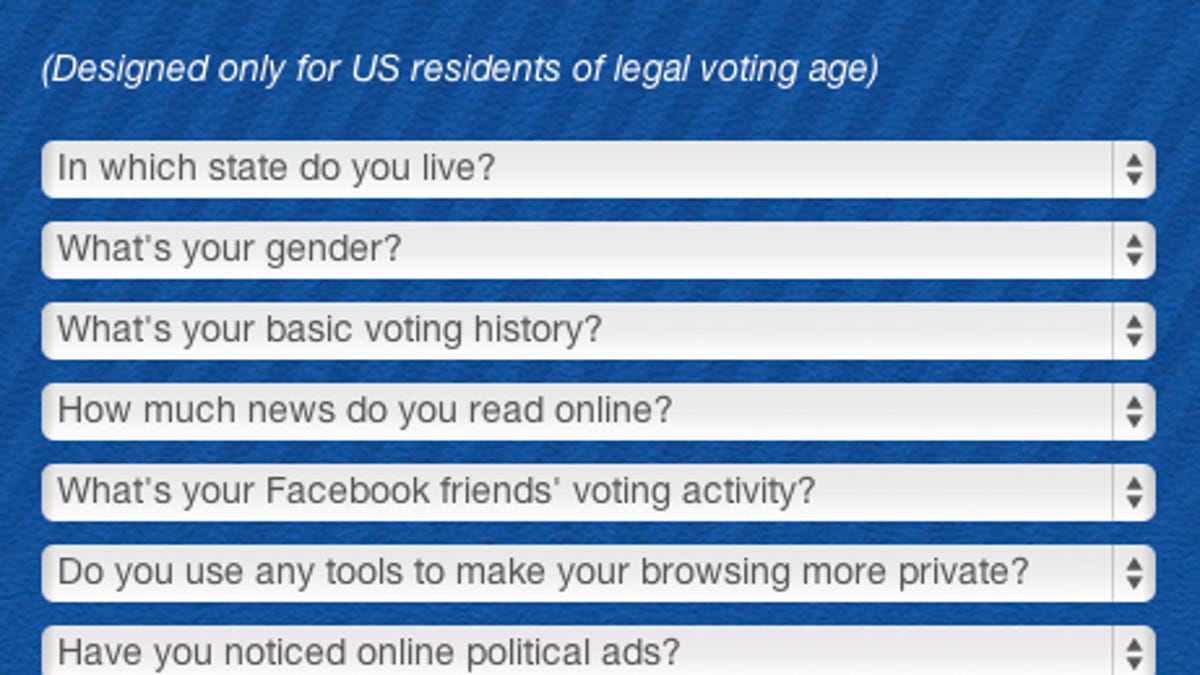Your vote costs Obama and Romney about $22
My vote's worth $30 to the U.S. presidential campaigns, according to Abine's vote calculator, which puts a fun spin on several factors that determine the cost of online ads. How cheap will yours turn out to be?

If you're an average online American, you're worth about $22 to the U.S. presidential campaigns, at least in terms of ad cost per vote. That's according to a new vote calculator produced by online privacy startup Abine, which asks seven multiple choice questions to gauge what you cost per ad.
The Obama and Romney campaigns have spent about $5 billion on online advertising so far but people are no longer receptive to traditional text or banner ads, says Abine privacy attorney and privacy advocate Sarah Downey. "A recent Anneberg study said that people dislike the idea that they're being targeted with political ads," she said in a phone conversation today. "86 percent of them disliked it, so instead of just going through Facebook ads, they're also doing apps, and recruiting your friends to do the work for them."
Abine's "2012 Presidential Election Val-You Calculator" asks some standard questions, such as which state you're from and basic voting history, but it also asks for how often you think your Facebook friends vote and whether you use any online tracking blockers. Like the many out there that are similar, this one weighs different answers differently. Changing my state from the safely Obama California to the swing state of Ohio raised my personal value to the campaigns from $30 to $36.
The questionnaire has a sense of humor, too. For gender, you can select, "Robot, Alien, or Unknown."
But humor and political hot topics aside, Abine's calculator draws attention to the fact that the campaigns are mining your personal data just like a private company would. Neither campaign has particularly progressive privacy policies, says Downey, and both ask for personal data like your friends' Facebook profile information.
Downey noted that while neither Mitt Romney's Web site nor his Facebook app has a Terms of Service section, Obama's claims that comments, questions, and photos you submit over Facebook or the Web site become the site's property. This is in contrast to the interactive portions of the Obama Web site, which states that it has a nonexclusive right to use those posts but that you retain ownership of them, she said.
Abine's take is that the presidential campaigns are as aware of your online activity as any other company, and that you are being data mined accordingly. Whether voters care about that is another issue entirely.

